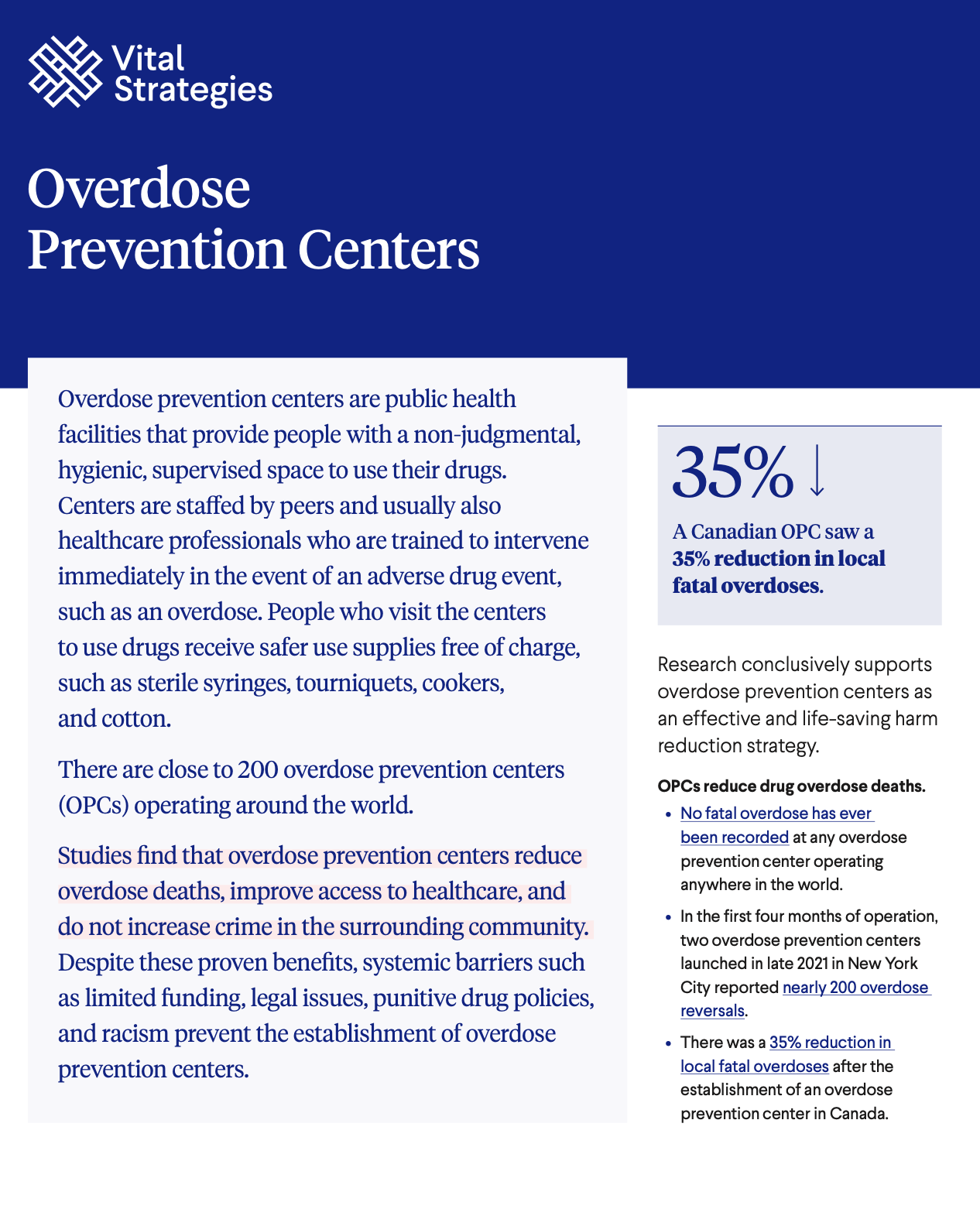Overdose prevention centers are public health facilities that provide people with a non-judgmental, hygienic, supervised space to use their drugs. Centers are staffed by peers and usually also healthcare professionals who are trained to intervene immediately in the event of an adverse drug event, such as an overdose. People who visit the centers to use drugs receive safer use supplies free of charge, such as sterile syringes, tourniquets, cookers,
and cotton.
This is one of five facts sheets explaining 5 interventions needed to end the overdoses crisis.
Additional fact sheets include:
Recent Abstracts
Trouble Brewing – The Case for Alcohol Policy (Second Edition)
Lessons from Vietnam’s Campaign for a Tax on Sugar-Sweetened Beverages
Principles of Alcohol Taxation
Clean Air in Jakarta: Gaps and Possibilities Toward Low Emission Practices
Public Attitudes Towards Alcohol Policy: South Africa
Quality Assurance and Improvement Framework for Medical Certification of Cause of Death and…
More Data Better Health: Climate and Health in the Legal Amazon
Mais Dados Mais Saúde: Clima e Saúde na Amazônia Legal
Health Taxes Action Guide
Opinión pública frente a la política de alcohol: Colombia
